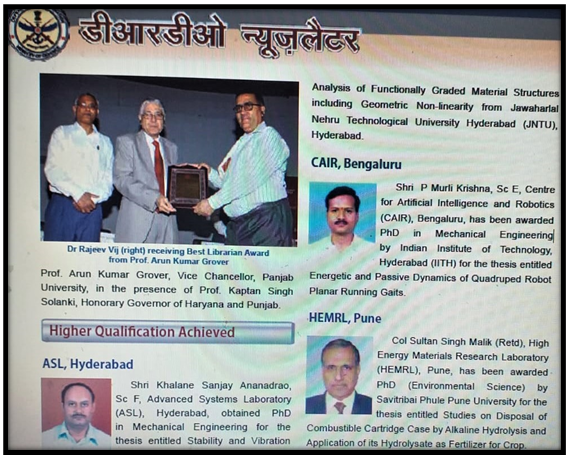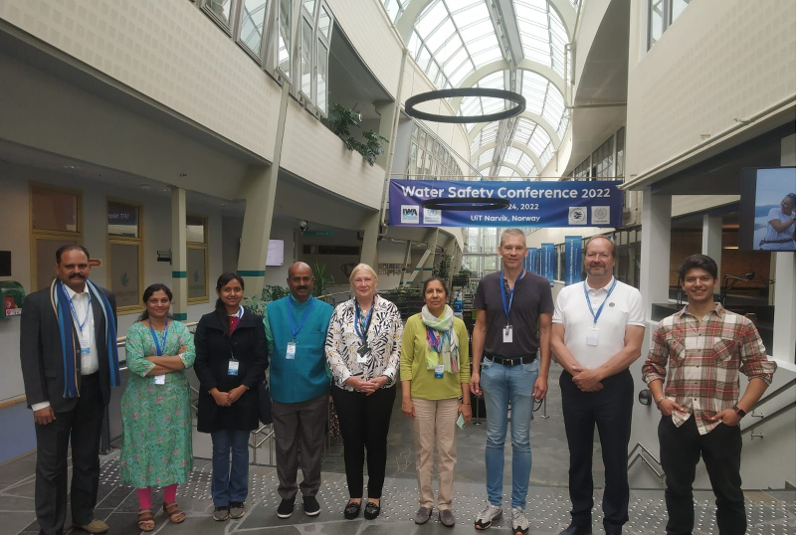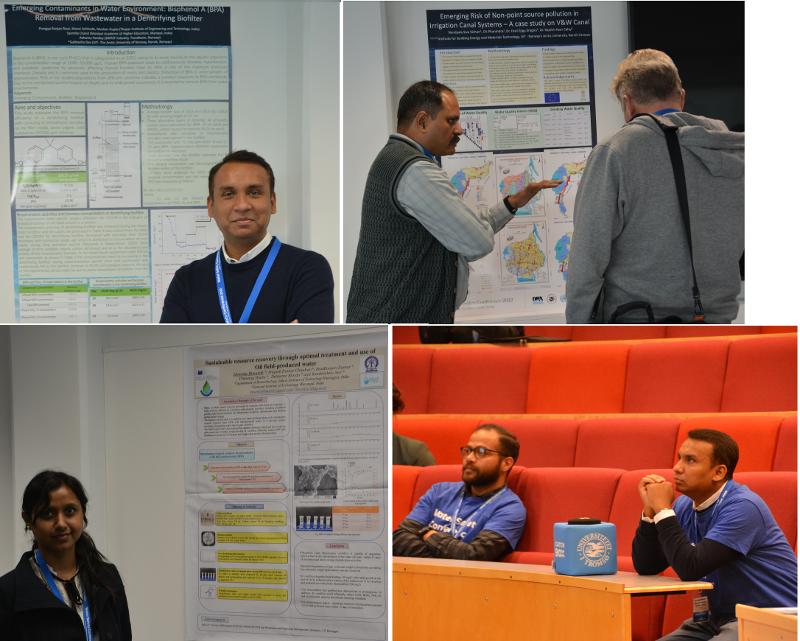Events
|
SPRING KO Meeting The online Kick-off Meeting for the SPRING project took place on 18 January 2021. Professor Bjorn Solvang, the Dean of the Faculty of Engineering Science and Technology, UiT, Narvik Campus, welcomed all participants and made a presentation about UiT and its unique location in Arctic Norway. This was followed by a welcome address by the Indian Coordination Lead, Professor Sanjukta Patra of IIT Guwahati. All 14 partner organizations were present for the official launch event and each made a brief presentation about their organizations and interests. In addition, Work Package Leaders presented the progress to date within each WP and outlined their plans and aspirations for project outcomes. The image below shows some of those present at this event for SPRING.
|
|
|
International Water Day: Valuing Water webinar by SPRING & SVSU SPRING project partner, Palavi Trust, an NGO based in Pune, in collaboration with Shri Vishwakarma Skill University (SVSU), Haryana Team, celebrated International Water Day on 22nd March 2021 by co-hosting a themed webinar entitled “Valuing Water”. Colonel (Dr) SS Malik, Director & Chief Coordinator of Palavi Trust, organized and coordinated the event. Dr Pooja Solanki, SVSU and Ms Parnika Bhambi, student representative of SVSU, conducted the session. The event was attended by the project partners and an external audience interested in water issues. The Webinar focused on state-of-the-art research in the critical area of water treatment and management. The Vice Chancellor of SVSU, Sh. Raj Nehru was the plenary speaker who shared his thoughts on the deteriorating quality and availability of clean water. Dr Kuldeep Bauddh, University of Jharkhand, was an invited speaker who presented phyto-restoration (natural cleaning of water by plants) methods to clean polluted water. Dr Sanya Ansari, DY Patil Engg College, Pune, presented an overview and the role of 'SPRING - A collaborative Indo-EU Water Research Project' in the field of water treatment. Dr Renu Sarath of Elixir, Vijayawada, an SME, spoke about the research on bio-oxidation methods for treating contaminated water resources undertaken in SPRING. Dr Antti Herlevi, representing the Finnish Water Forum, summed up the webinar by addressing the need to create water sector forums in other countries similar to the model used in Finland and the awareness benefits such organizations bring to the industry.
|
|
|
The management board and partner's meeting were arranged online on 11 October 2021. All the participants presented the work done and discussed the progress to date.
|
|
|
First Stakeholders Meeting 6th December 2021 The workshops mark the closure of Work package three activities, which are led by SRKR Engineering College and focus on identifying the point and non-point sources of pollution in water bodies and preparing the vulnerability maps. SRKREC and IIT Varanasi (BHU) have worked in tandem towards the same objectives for Godavari Delta and Mid Ganga Basin, respectively; the findings were submitted to the EU and DBT as deliverables. To share the findings with the broader public and stakeholders, SRKREC organized a stakeholder workshop to disseminate the outputs of the project pertaining to the Godavari Western Delta to its stakeholders. The workshop was organized in hybrid mode. The local stakeholders participated in the event in person, and the EU, India coordinators and other Indian Partners joined the event online. Many key people from the Government, political parties, senior engineers from the Irrigation and drainage department, and farmer representatives attended the workshop in person. It is important to mention that a Member of the Legislative Assembly who could not make it to the meeting was later briefed about the proceedings of the meeting. He expressed his support in getting state government-level stakeholders for the next meeting and suggested that all SPRING partners should be present for the next meeting, at least online. Print and Electronic Media covered the event and reported in the newspaper in vernacular languages. All the stakeholders expressed their interest in cooperating and working with SRKREC in highlighting these issues in relevant fora for policy advocacy. Water User Associations, Academicians, and Public Representatives have been active constituencies of the extension activities. The stakeholder workshop has been organized to involve all these stakeholders in the dissemination activity. The workshop was organized on 6th December 2021 WET Research Center at SRKR engineering college. |
|
|
Inauguration of copies of the reports submitted to the EU: From L to R Principal (Dr Jagapathi Raju), CEO-SRKREC (Mr SRK Nishanth Varma), Secretary cum Correspondent (Mr SVRanga Raju), People's representative -1 (Mr PVSatyanarayana), People's representative -2 (Mr Bh.Balaram), PI-SPRING Project (Dr PARK Raju) |
EU and Indian project partners connected via online meeting. |
|
Dr PARK Raju is presenting the outputs to the stakeholders |
Mr PV Satyanarayana, the state convenor for Water Resources Policy, attended the workshop. He also expressed his support in getting state government-level stakeholders for the next meeting and suggested that all SPRING partners should be present for the next meeting, at least online. |
| The presentation of the maps was followed by a discussion with the stakeholders. | |

|
 |
| Some news cutting from local newspapers | |
|
|
 |
|
|
 |

Sir Arthur Cotton Barrage Godavari Delta system is a network of over 5000 km of major and minor channels, which are the exclusive source of water supply to meet all human and livestock needs. Thematic Map with canal and drainage network is the basic information need to identify the source of water for various human settlements, agriculture, aquaculture and industries under various administrative units for linking the Water Safety Plans with the ground situation. The canals are distributory in nature, supplying water, and drains are collective in nature, receiving spent water from various human activities, ultimately draining into the sea. |
The land uses land cover resource map depicts the spatial distribution of settlements, agriculture, aquaculture, industries, major canals and drains, their distribution and confluence points etc. The map also includes all potential point sources of pollution. The land use practices in the area are dominated by agriculture, cropland and aquaculture. This map provides significant insights for identifying various point and non-point sources of pollution and their association with the whole drainage system and land use practices. Landuse maps generated using images from various dates help understand the change in land use. The change from agriculture to aquaculture has been quite drastic in the past three decades. |
|
The process waters from Agriculture and Aquaculture are let into the drains or irrigation canals periodically. However, depending on the variation in hydraulic gradient between the agricultural fields & aquaculture ponds and the nearest canal bed, process waters keep percolating into the aquifer as well as the nearest canal. Therefore, there are unseen, 'non-point' streams of chemical-laden process waters that are constantly joining the canals and drains as seepage. This map provides useful insights for a better understanding of sources of water pollution and potential strategies for correcting them. |
The Godavari Delta canal system finally drains the water into the Bay of Bengal. The Central Pollution Control Board of India prescribes marine disposal standards for wastewater. Water quality analysis from over 40 samples in drains has revealed that water in drains is grossly polluted and even unfit for marine disposal. EPA class 2 parameters viz pH, DO, MPN, and Turbidity are considered to calculate the Water Quality Index (WQI) related to drains. The Marine ecosystem WQI is calculated as per the Horton WQI method, and the calculated values are overlaid as a pollution intensity heat map on a land use map. |
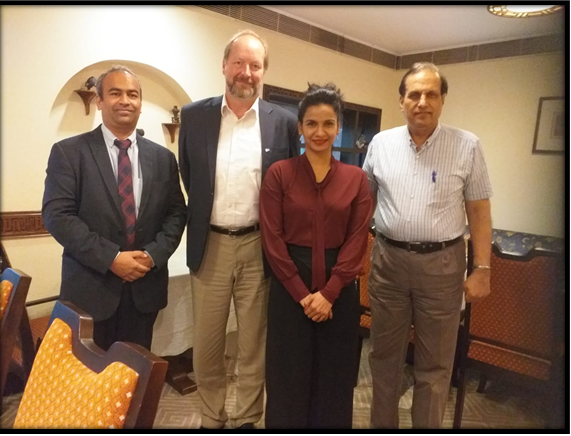
INEU Water Forum Meeting Dt: 30 Nov 2021, in New Delhi, Adhoc Working Committee. The meeting was attended by SS Malik, Palavi Trust, Pune, Antti Herlevi, FWF, Anshul Jain, DWF and Sudha Gangadharan, Nordic Consulting. |
Indian DRDO (HEMRL Pune), acknowledged the research work Dr SS Malik, Palavi Trust, Pune On 'By The Process Of Alkaline Hydrolysis Eco-compliant Recycle Of Hazardous Waste' |
Water safety conference 2022Water Safety Conference 2022 was organised by UiT Narvik, dated June 22-24, where more than 140 water professionals from more than 50 nations participated. Five posters from the SPRING project were selected for presentation at this conference. |
|
|
Indian and European delegates attended the Water Safety Conference. |
Poster presentation sessions |
SPRING water summit 2023 in New DelhiWater related platform for Nordic countries and India. The meeting was financed by EU horrizon 2020 SPRINGPROJECT with the presence of Ambassadors from Norway and Finland, and Indian officers |
|
 |
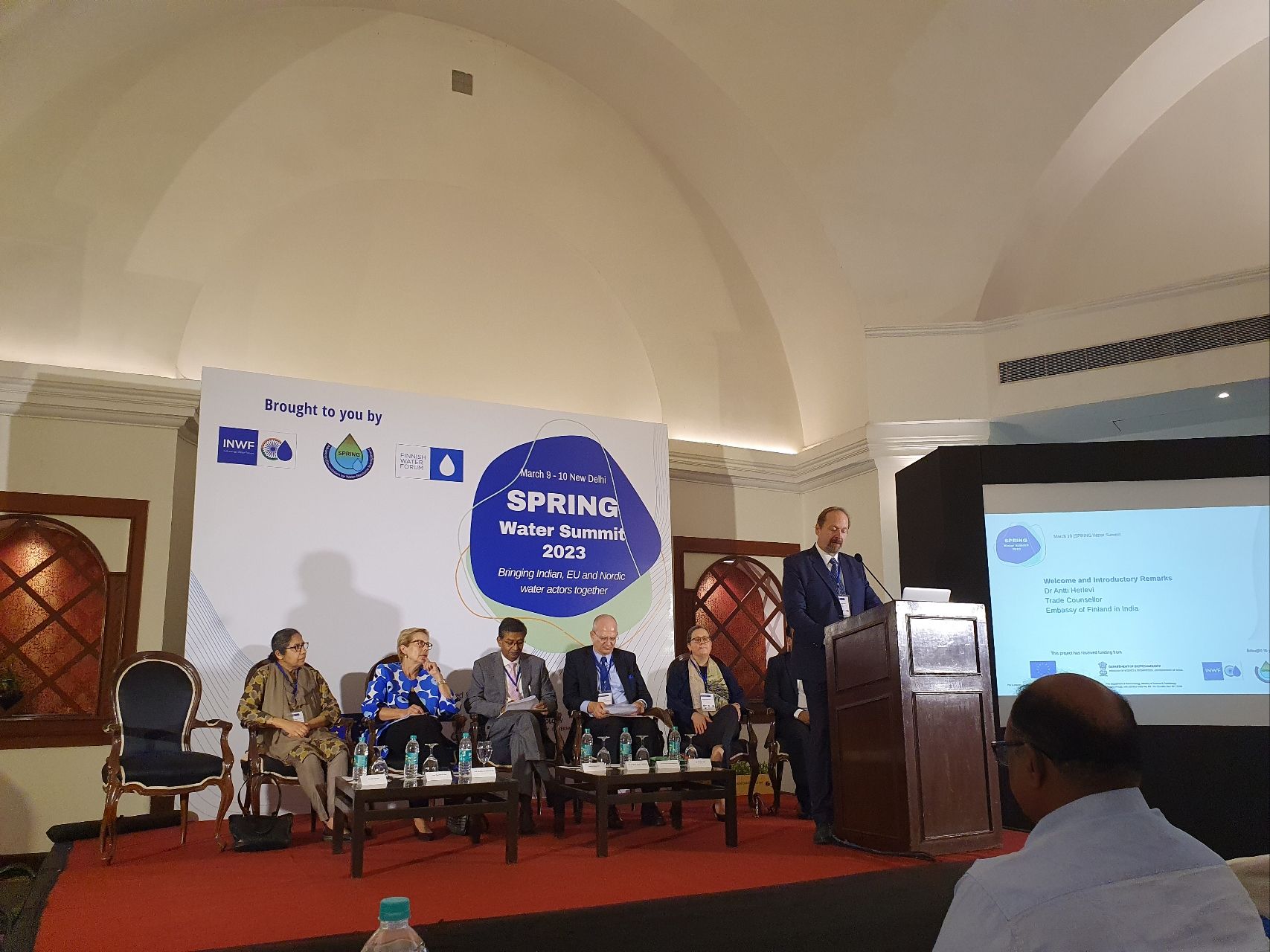 |
INDO NORDIC FORUM SUPPORTS Water PROJECTS in Haryana
SPRING establishes Indo Nordic Water Forum as a stakeholders platform and one stop shop to facilitate communication between industry, users and policy makers to share knowledge, implement technologies for one mission to clean water sources and maintain the quality of water for drinking, agriculture and industrial uses. INDWF has brought together Haryana state government and Finland Embassy for a project of purification of water of Sukhrali village pond near Gurugram. This pilot project if successful, will be extended to other similar waterbodies across the state, said Finnish Ambassador Kimmo Lahdevrita, "I have full faith in success and expansion of this project. This is a classic example of technological crossover for public welfare"
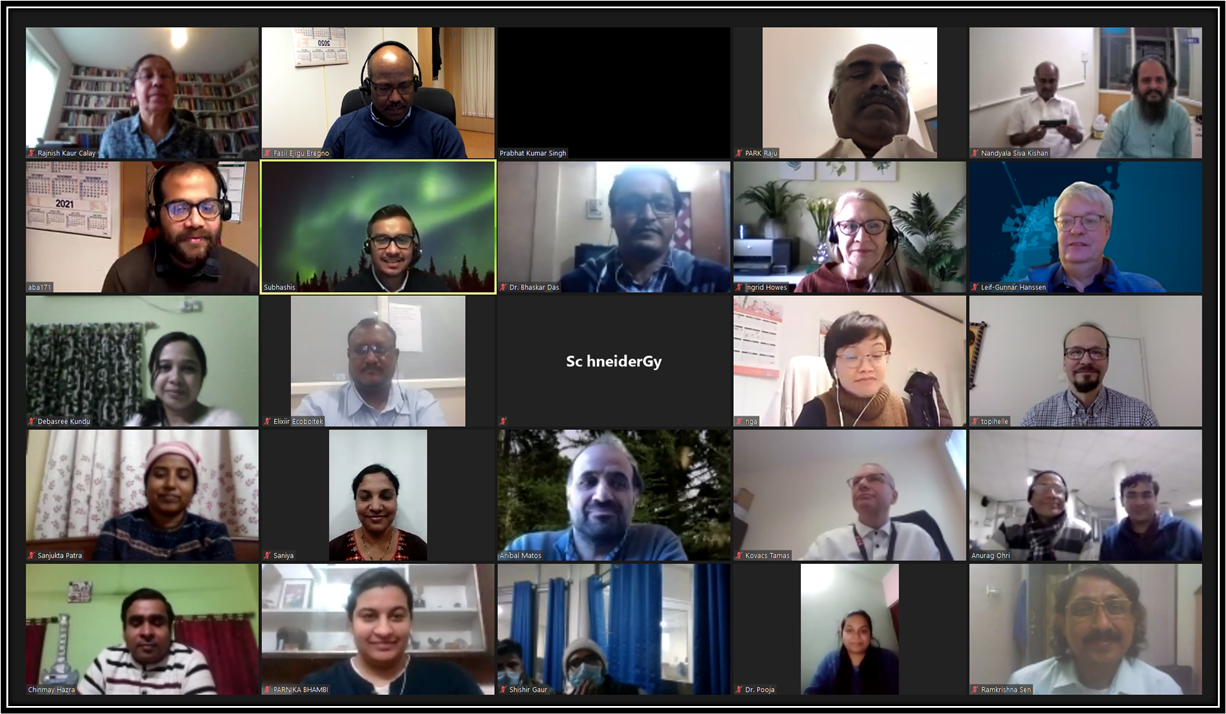
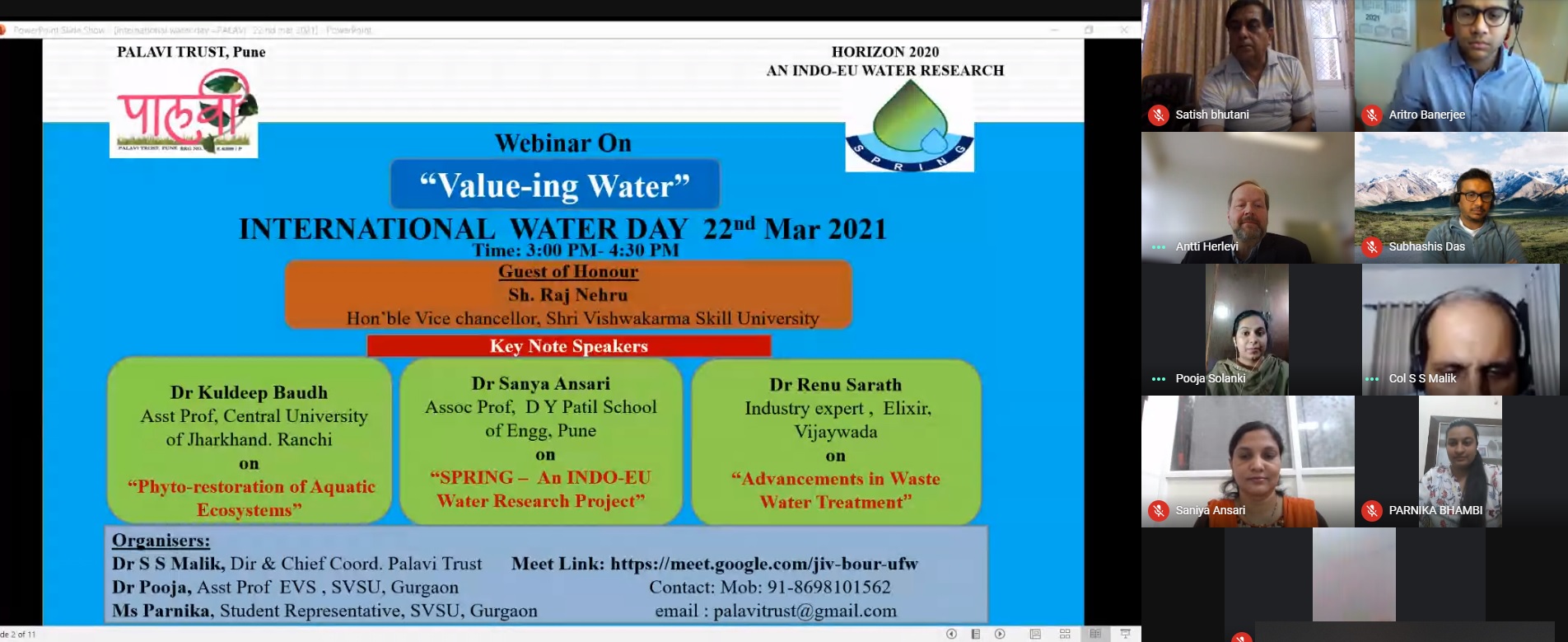
.png)









